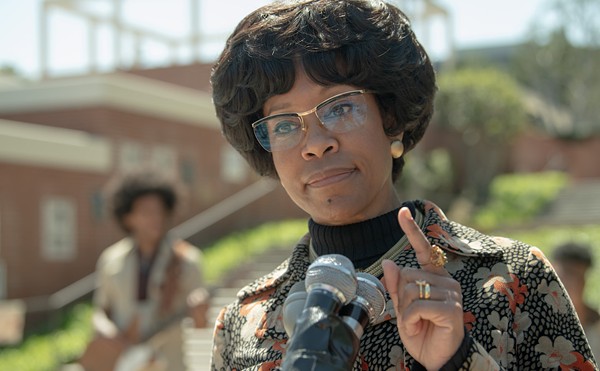The end is near, all right. But in the few days remaining before your computer eats the German shepherd and the supermarket runs out of Cheez Whiz, take a couple of hours to see Don McKellar's Last Night, an engaging preapocalyptic fantasy in which assorted residents of Toronto figure out what to do in the last six hours before the planet vaporizes. First-time director McKellar, who also wrote the script and stars, never makes it clear who scheduled the end of the world for midnight Toronto time, or why. But then, cosmology is not his strong suit. Wry comedy is, and he wrests from the old movie notion of Armageddon some inspired burlesque. He provides a horny toad named Craig (Callum Keith Rennie), who in the weeks leading up to the big goodbye has been making up for lost time by screwing every animal, vegetable and mineral he can get his hands on -- including his former high-school French teacher. He gently satirizes a long-married couple who gather the children around for the "last supper," complete with turkey, ham and hokey Christmas gifts -- even though it isn't Christmas. He conjures up a dogged power-company bureaucrat (fellow Canadian director David Cronenberg) who prepares for oblivion by cheerfully assuring customers by voice-mail that the gas will be on until the end.
The two characters we care most about -- or are supposed to -- are a cynical loner named Patrick (McKellar) and a married woman named Sandra (Sandra Oh), who are accidentally thrown together as the clock ticks. She's trying unsuccessfully to get home to her husband; Patrick just wants to be left alone. But they're destined to be together, and the film eventually makes an example of them, showing the human potential we'll lose if the lights go out for good.
McKellar, known until now as a screenwriter (The Red Violin) and an actor (eXistenZ, Exotica), may not give us what you'd call a coherent vision of doom, like the ones in Dr. Strangelove, The Day the Earth Caught Fire or dozens of imitations, old and new. But he does speculate -- usefully, I think -- that when faced with their own destruction, people will respond according to their own principles, established rituals or desires. In Last Night, then, we've got revelers partying till they drop, would-be poets drifting onto lakes in canoes, snot-nosed vandals smashing cars and, in the case of Patrick and Sandra, lost souls finding each other only when it's too late. What we don't have is some bogus hero trying to stop catastrophe at the 11th hour: McKellar's characters know the party's over, and they're, well, dealing with it.
All of this in Toronto, no less. For all we know, apocalypse won't come to Los Angeles for another couple of hours, and the folks in Kuala Lumpur are probably safe until morning. Call it movie magic.
That McKellar's entire 6 p.m.-to- midnight crisis unfolds in scalding daylight probably says less about his idea of what annihilation would look like than the practicalities of shooting a low-budget movie in the daytime instead of at night. If I'm not mistaken, Roland Young stopped the Earth's movement cold in The Man Who Could Work Miracles; what we see here is a shortage of klieg lights. My favorite little moments in Last Night are the revelations that the government has long since ceased operating (a fantasy that many of us can embrace) and that cell-phone communications have broken down (a blessing that most would applaud). I also loved the notion that the French teacher (Genevieve Bujold), clearly the object of her ex- student's fantasy for years, can now say to him, and really mean it: "Bon voyage."
In the end, McKellar's dark wit degenerates into gloom, seriousness and (worst of all) solemnity. That's almost inevitable, given that we're talking about the total demolition of the Earth by forces unknown. But it would have been nice if he hadn't forced us to eat our peas, worldview-wise, and instead found a way to keep his cosmic joke going until the very moment of whiteout. Not that it matters, now that we're all dead.
Opens Nov. 19 at the Plaza Frontenac.





